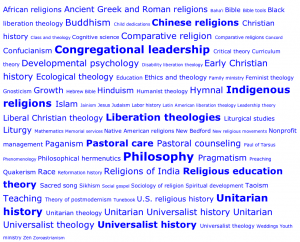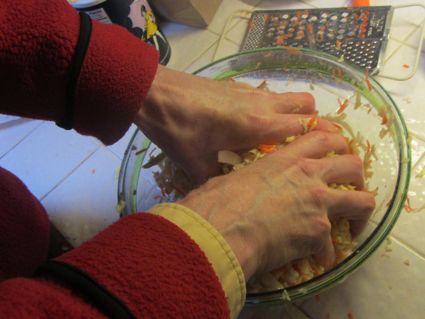It has not been a great year in liberal religion.
In one ongoing negative trend, most Unitarian Universalists continue to act as though we are part the ruling elite in this country. Mind you, as recently as the 1950s, Unitarian Universalists actually could claim to be part of the ruling elite. Back then, Unitarians and Universalists were considered mainline Protestants, and the United States was run by mainline Protestants, for mainline Protestants. And while the Universalists were marginal at best by the mid-twentieth century, the Unitarians could claim to have some real influence. Most notably, A. Powell Davies preached to a congregation containing a number of high-level functionaries in the federal government, as well as a few elected officials; and the Washington newspapers supposedly held their Monday morning editions until they could get the text of his Sunday sermons. Also worth noting: Adlai Stevenson II, Democratic presidential nominee in 1952 and 1956, was a Unitarian, as were a number of other politically influential people.
Today, however, the mainline Protestant coalition that long dominated the United States is crumbling, and Unitarian Universalists have moved themselves out of, and been pushed out of, mainline Protestantism. As a result, politicians either don’t care about us, or they can dismiss us since we represent such a tiny minority (about half a percent of the total U.S. population). As a religion, we have no real power or influence.
Yet we continue to act as if we do have political influence. The most blatant example of that was the “Justice General Assembly” in June of this year. A few thousand Unitarian Universalists from across the country went down to Phoenix, Arizona, and protested unjust and discriminatory state law. Sheriff Joe Arapaho of Maricopa County used our presence to bolster his carefully cultivated image with his voters — here come these out-of-state leftist hippies, telling me what to do, but I’m standing up to them! — and I’m sure our interactions with him did nothing to weaken his political position; indeed, our presence in Phoenix probably strengthened his political position. As far as our influence on state politics, I could find no evidence that we were even noticed — OK, we made it into the local newspapers, but honestly who cares about newspapers any more? In short, we’re doing social justice as if it’s 1955. Justice GA made us feel good, but had little positive impact beyond that.
On the other hand, there are some Unitarian Universalists who have moved beyond social justice c. 1955. For example, I continue to be impressed with the organizing efforts of groups like the Unitarian Universalist Legislative Ministry of California (UULMC). But UULMC represents a quite different approach to influencing politics — UULMC is a separate nonprofit organization that employs ministers who are not serving a local congregation, as well as other staffers, to do organizing around specific legislative issues. UULMC can not only build coalitions with other advocacy groups, it can use the skills and abilities of ordained ministers to influence legislators, without those ministers having their time and attention divided between politics and a congregation.
This approach to influencing public policy is significantly different from the 1950s approach in which Unitarians assumed they were part of the ruling elite and deserved special access; it’s also very different from the 1960s model of protest politics, where the grounding assumption was to disrupt the ruling elite. Justice GA remained mired in the 1950s and 1960s — you have to pay attention to us because we’re important! and — we’re going to be angry protestors just like in the 1960s! UULMC have moved forward into the very different realities of the 2010s.
Tomorrow: The year in review continues, with thoughts on why UU ministry to children and youth sucks


